Here’s a totally non-controversial statement: a baby elephant is the cutest thing you’ll ever see. And to answer the question upfront: a baby elephant is a calf.
Yes, that’s correct – the baby elephant name is the same for cow babies (and a few other young animals we’ll talk about later).
Carrying on that theme, female elephants are cows, and males are bulls. That should be easy enough to remember the next time you’re on safari and come across a few of these beautiful beasts in the wild.
Elephant Calves Act Like Human Babies
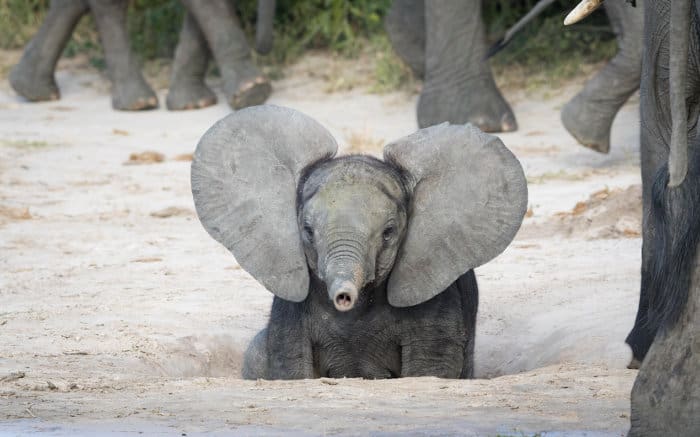
It may seem strange to think about at first, but elephant calves – especially really young ones – are a lot like human babies. They are almost entirely reliant on their moms for safety while learning how to be an elephant.
You can often see baby ellies playing around happily, and they look quite funny sometimes, trying to make sense of what’s happening.
Adult elephants are quite used to seeing human safari vehicles and don’t mind them too much. Calves may seem more nervous and even frighten easily.
Even if they don’t, they may inadvertently cause a playful situation to become a dangerous one.
Elephant Adults Act Like Human Parents
It’s a bad idea to approach or even try to attract a baby elephant’s attention. They may react aggressively (even if they are playing), and chances are their moms will not be happy about it, and take it out on you.
If you watch elephant babies long enough, you will see them mimicking adult behaviour. That’s another way in which they are like human children.
Elephant Calves Need Mothers to Survive
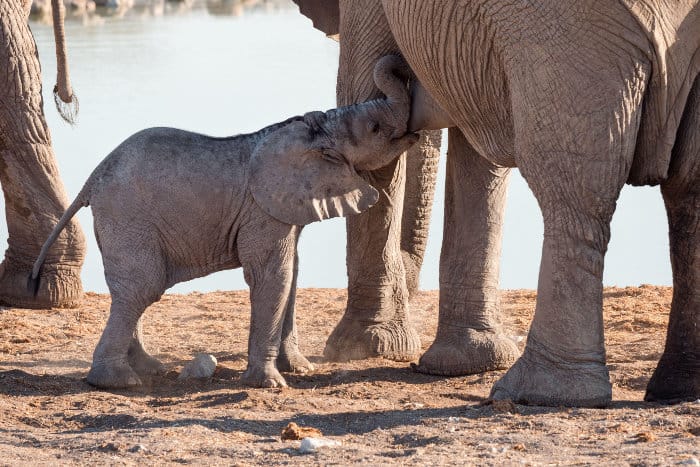
We know from watching baby elephants develop that they aren’t totally instinctual in their behaviour when they are born. They learn a lot by observation and their moms have a lot of work teaching them how to survive.
Calves feed on mother’s milk for at least three years and in extreme cases up to ten years. After this, they can eat grasses and other vegetation exclusively. They can drink as much as 10 litres of milk per day.
Mothers also teach their calves what to eat when they start eating other foods, how to stay clean and healthy, and how to use their trunks.
Without this instruction, baby elephants seem to be very confused by their own trunks. They sometimes even step on them accidentally.
More Facts About Baby Elephants
Let’s talk about some more interesting facts regarding the baby elephant. A mother elephant gestates for 18 to 22 months. When the baby elephant is born, it can weigh as much as 115 kg. A healthy baby elephant stands at around a metre high.
You may notice some curly hair on its forehead, which makes that baby ellie even more adorable, to be honest.
We’ve already mentioned their trunks. Did you know that baby elephants suck on their trunks like human babies suck on their own thumbs?
You may see calves putting their trunks into the mouths of adults. Like humans, baby elephants sometimes need to take food from adults, especially as they learn to eat the right things.
Another elephant habit may seem a bit disturbing. Don’t panic if you see a young elephant eating dung. It’s not a sign of illness.
Elephants are born without a certain kind of bacteria and enzymes needed to digest particular kinds of solid food. These enzymes transfer into the dung of adults, and baby elephants introduce it to their own system this way.
After a year, elephants get the hang of how this trunk thing works, and you’ll see them wield it confidently. It’s a good thing, because that trunk has 40 000 muscles in it!
Some Weird Facts About Elephant Babies
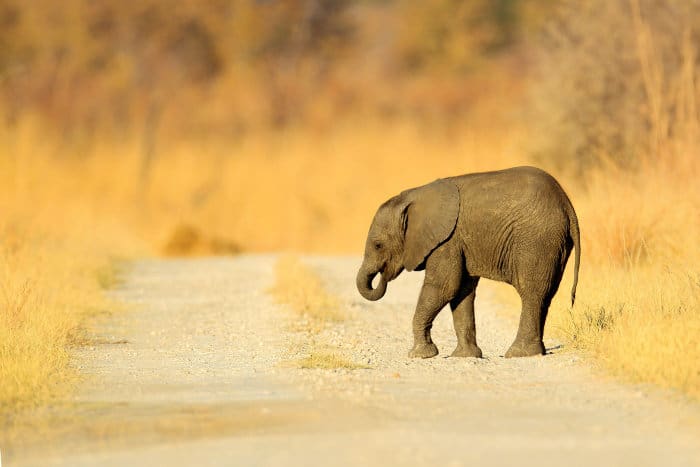
This seems like a good time to offer a series of “did you knows…”. For example:
- Did you know that most elephant calves are born at night? Statistically, a baby elephant is more likely to be born when the moon is out.
- We’ve mentioned that baby elephants have hair. Most of their body is covered in fine hairs that help to cool them down. These hairs eventually thin out and mostly disappear as they grow.
- Most adults in a herd will contribute to taking care of a calf. If a baby is in distress, all the adults will rush to the rescue or try to reassure it.
- A female elephant is likely to spend its entire life with the herd. A male calf can expect to leave the herd at 10-12 years.
“Calf” is One of the Most Common Baby Animal Names
Lots of species share baby animal names. We all know that baby cows are calves and now we know that baby elephants are too.
They are just two of several other baby animals called calves. Yes, we call the young of all these mammals calves, and adults cows or bulls.
- Humpback whale
- Cape buffalo
- Black and white rhinoceros
- Hippopotamus
- Giraffe
- Moose
- Bison
- Ox
- Reindeer
- Yak
You might not know that the word “calf” is also the name for a piece of ice that breaks off from an iceberg. So… a baby iceberg, if you will. As far as we know, we don’t call icebergs and glaciers cows, though.
Animal names for a baby do sometimes get weird. For example, do you know that a baby snake is called a snakelet?
Why not find out about other animal baby names for African animals?
Some of them have pretty interesting baby animal names of their own for their young. And then you’ll also know what to call them on safari.
Baby Elephants Are Becoming Rare in Captivity
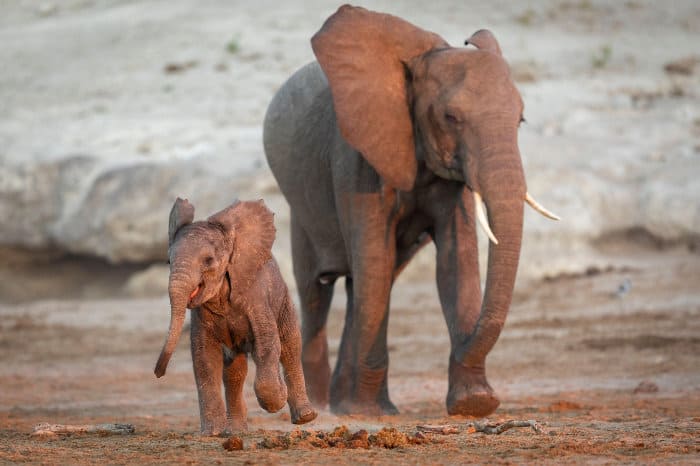
Sadly, fewer baby elephants are being born in captivity, due to rising rates of infertility.
Scientists theorise that this is because elephants are eating incorrectly outside their natural habitat, and perhaps that they aren’t getting the natural exercise they would enjoy in the open African savanna.
Fortunately, populations seem to be slowly rising in the wild, despite the devastation brought by poaching and habitat loss. There’s reason to be hopeful, however, we’re not out of the water yet when it comes to saving the elephants.
It’s Best to See An Elephant Baby on Safari
It’s always best to see elephants and other animals in their natural habitat.
Many locations and countries in Africa proudly protect elephants and invite visitors to see them.
Book a safari to encounter these majestic, incredible gentle giants of the veld.
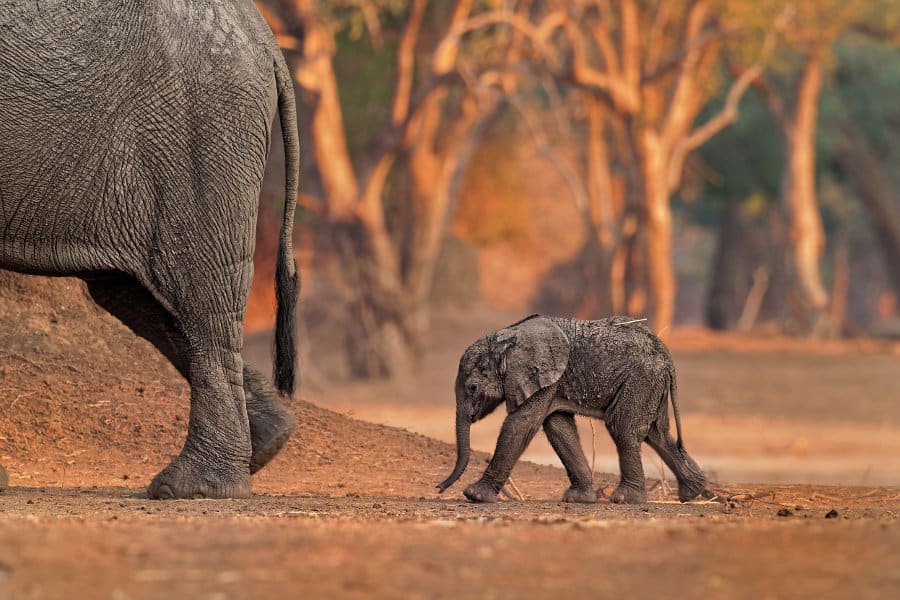
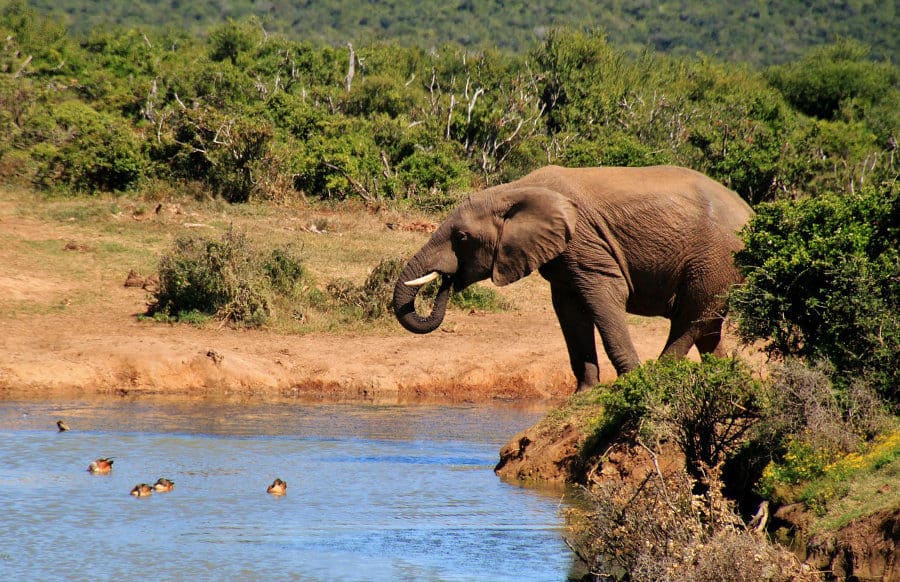
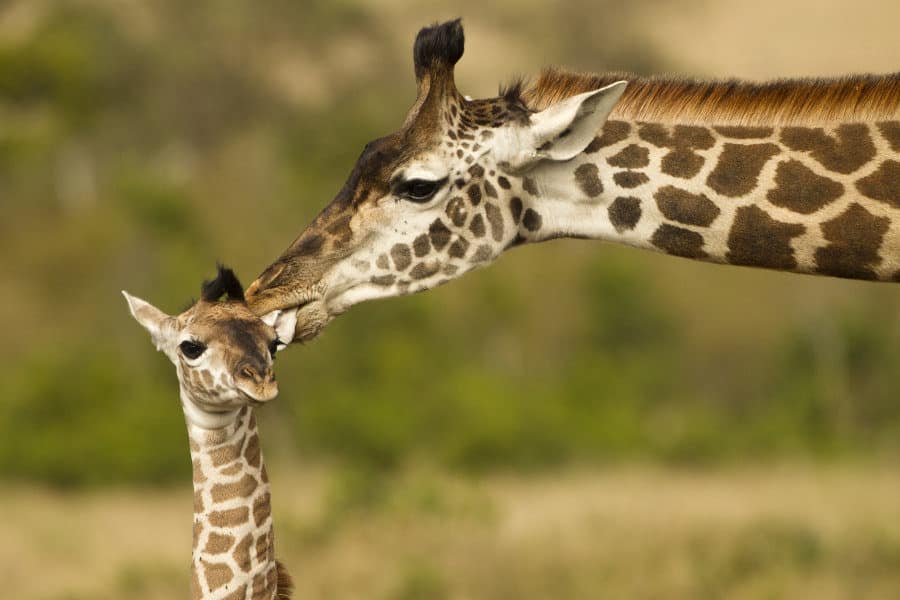
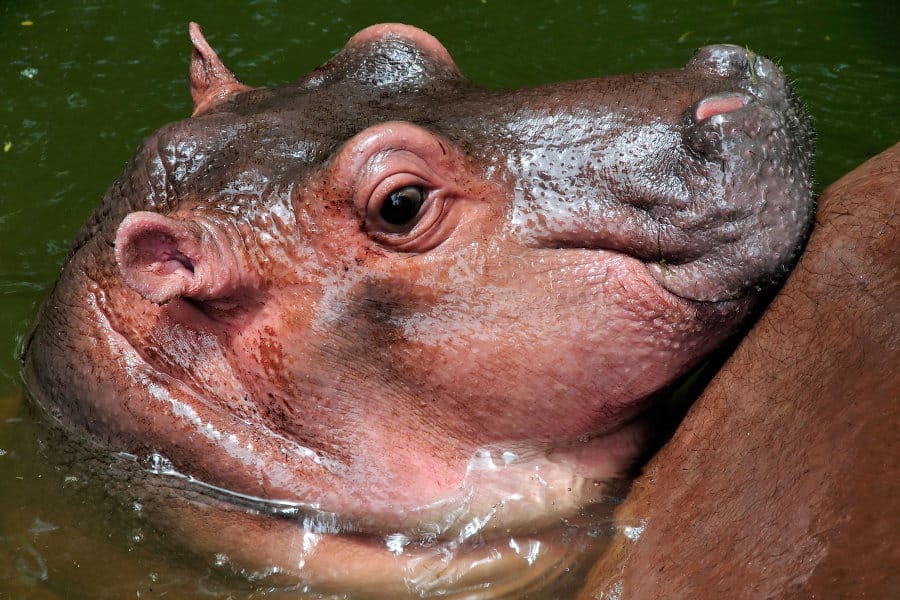
I love elephants!